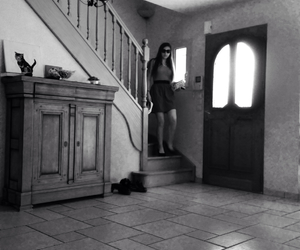 Getting out of a relationship with a sociopath can be dangerous, draining, and confusing. For me, and I’m guessing for many others, this can be exacerbated by the fact that finding the right support during this vulnerable time can be difficult.
Getting out of a relationship with a sociopath can be dangerous, draining, and confusing. For me, and I’m guessing for many others, this can be exacerbated by the fact that finding the right support during this vulnerable time can be difficult.
Finding The Right Therapist
There was virtually nothing left of me after almost two decades of being unwittingly married to a sociopath –chronic, subtle criticism; gaslighting; isolation; blaming; triangulating, intermittent love/affection, etc.
To weaken me further so that he could prevail in our divorce, my then husband started using full frontal assaults as well—verbal abuse, financial terrorism (pretending he could no longer draw a salary from his business; draining accounts; cancelling credit cards; etc.);contacting my parents and lying to them about me; threatening me; the list goes on.
I was so devastated by the realization of whom and what my soon-to-be ex-husband must be, not to mention the corrosion I’d been subjected to for years, I sought out a therapist who was knowledgeable about abusive relationships.
Over time, she made a huge difference because she was the right therapist for me and had experience with abusive relationships. Shockingly, not all therapists have this training or relevant experience. An earlier therapist I’d seen is an example of a huge missed opportunity.
Beware The Wrong Therapist
Years earlier when I also felt that the smart, strong, accomplished person I’d once been had turned to dust, I turned to a therapist.
Although she helped me regain a bit of my former strength, the question was never broached of whether or not my husband could be a sociopath and perhaps this is the reason I had changed so profoundly. The possibility that I was in an abusive relationship was never considered.
This was a huge lost opportunity. If I had considered and concluded that my husband at the time was a sociopath, I would never have used my new found strength to invest in my marriage, including moving far away from family, friends, job contacts, etc. for the “fresh start” my husband wanted.
Once I was isolated, my husband restarted his corrosive tactics and the separation, divorce and post-divorce from hell quickly ensued. Working with the wrong therapist can not only set you up to make the wrong decisions when you are unwittingly involved with a sociopath, but it can also be crazy making and further eroding.
A friend who was in an emotionally abusive relationship worked with a therapist who did her absolutely no good. He’d often ask her why she let herself be impacted by her husband’s words (abusive words). Amazing! I’d like to see that therapist live day after day in an environment in which he is gaslighted, ignored, and when not ignored is verbally abused. All the psychology I’ve ever studied indicates that environment matters. People and environments can be toxic, and getting safely away from them is important.
Sidestep Family/Friends Who “Just Don’t Get It”
As competitive, successful, strong women are favorite targets for sociopathic/psychopathic men, it’s possible when you turn to your family for help, they just don’t get it—they may still see you as the strong, successful, competitive, competent person you were previously, and it’s too incongruous for them to really believe how eroded you are–that you’re not just having a bad day or week; but that you feel your soul has been shredded and that “you” are now no more than shadow and ghost.
Did you know about sociopaths/psychopaths before this happened to you? I didn’t. Your family may have no relevant experience, either. The lens they apply is likely the one that has served them well to this point—you’re experiencing a normal breakup, breakups are hard, you likely played a role in it as well, you’ll get over it soon enough, just put it behind you and move forward. Although they may truly love you, they don’t understand, and the framework they apply to the situation may feel hurtful and judgmental—two things you really don’t need right now. (Self-reflection may be important, but not at the stage where getting out safely and no contact is the priority.)
Family/Friends With Hidden Agendas
One thing I sadly discovered as I reached out to family and friends for support is that some of them had hidden agendas. Perhaps some enjoyed being with me due to my success and energy, and now that I couldn’t offer that to them, the relationship no longer worked for them. Who knew?
Even worse, I’ve discovered some people I thought I was close to used my current difficulties to feel superior or pass judgement– “How could you let this happen?” “How could you be so naïve?” “I told you to get out sooner.” (Even if I couldn’t recall them actually ever giving me that advice.) Asking someone how they ended up in a dark, churning, ocean gasping for air is not particularly helpful when someone is drowning—throwing them a life preserver is.
For those of us who’ve had their lifestyle or career or family derailed, some “friends” may use this as an opportunity to be competitive: “I’m so sorry you’ve lost your home, now let me tell you about the amazing addition I’m putting on my house”¦” or “How terrible your son is near suicidal. My daughter just got into Harvard and finished third in her age group at archery nationals.” Now, that’s helpful too.
The Aftershock Of Not Finding Support Where Expected
Like earthquake aftershocks, we may think we’ve found a temporary safe haven, but sometimes we have not. My therapist had to help me understand that I had to stop returning to sources for “support” who really weren’t supportive. It doesn’t matter if I wanted them to be supportive or they “should” have been supportive. It’s reminiscent of the Albert Einstein quote–“Insanity: doing the same thing over and over again and expecting different results.”
I had to find some new sources of support—such as Lovefraud and others who have lived it or a few rare people who were unconditionally supportive and had no hidden agenda.
Although it took time to see it, one of the silver linings was that at the end of this painful process, I really found out who my true friends were and forged some new profound relationships as well.
My own sad tale of unwittingly investing almost twenty years of my life into a relationship with a sociopath and sometimes diverting from the best path, is chronicled in my book Husband, Liar, Sociopath: How He Lied, Why I Fell For It & The Painful Lessons Learned (available via Amazon.com). As I don’t get a “do over,” hopefully some of my painful lessons can help others impacted by these toxic people.
Identifying names, places, events, characteristics, etc. that I discuss here and in my book have been altered to protect the identity of everyone involved.




































 LETTER TO LOVEFRAUD: I was his “front” – no one would believe he was hiring hookers
LETTER TO LOVEFRAUD: I was his “front” – no one would believe he was hiring hookers
Jan7
Diane111, just checking up on you to see how you are doing. I haven’t seen you post this week.
Diane111
Hi Jan7,
Been down-and-out with the flu since last Tuesday. Actually just went back to work this past Monday. Thanks for checking in on me.
Everything else is status-quo with me, and I hate it. I don’t understand, and I’m getting extremely frustrated with myself that I haven’t left my h yet! I want to leave. I need to leave. Yet it’s like I’m held there by some unseen force. My anxiety and stress levels are high. I keep it all inside because, like I’ve said before, I’ve been conditioned not to “rock the boat”. I know this is not healthy for me … physically or mentally, but it’s where I’m at right now.
Will comment more later on …
AnnettePK
Diane,
I understand what you describe as being held by an unseen force. I experienced the same thing. Consider if your ex is manipulating your thinking in subtle ways. My ex psychopath used hypnotic techniques and lots of other manipulative techniques to control my thinking. My son said it was as if I was a ‘puppet on a string.’
When I stopped having constant daily contact with the ex spath, my thinking changed and got back to normal me. My perceptions became more logical and balanced.
You might consider writing a list of pros and cons of leaving vs. staying – sometimes it helps to break one’s thoughts down into individual facts and feelings. You might consider making a detailed plan – just in your mind or write it down if it’s secure from him – about the specific steps you would take to leave, and in what order. Even if you don’t leave according to the plan, it’s helpful to think about the details, down to packing your clothes and what things you’ll take, and when you might leave.
You might consider finding a counselor or support group, maybe through a DV shelter if there’s one in your area. They may have services for people who aren’t using the shelter facilities.
AnnettePK
Also, this book was very helpful to me. You can read exerpts from it for free on Amazon here, before deciding whether to buy. http://www.amazon.com/gp/product/B004DI7SSC/ref=dp-kindle-redirect?ie=utf8mb4&btkr=1
Diane111
Thanks AnnettePK! I did check out the book, and it does look like its something that will help me. Any resources that get my thoughts on the right track is what I need. I have one of her other books also.
Just quickly doing a pros and cons list in my head … there are no pros … swear … none. Please don’t think it’s hell 24/7 BUT when I stop and actually think, “Why am I here?” I don’t have an answer. We own nothing jointly. Neither is close to the other’s family members. We have no children together. All our monies are separate. How sad is this. How sad am I.
As you know, Easter is just around the corner. I’m hoping … my plan is … to start anew … make a fresh start … be away from him so I can begin to think clearly versus having my thoughts and emotions always in a tornado.
Will stay in touch as my plan and life unfolds …
AnnettePK
Diane,
Keep us posted! It’s hard breaking free, and then you may find yourself unexpectedly being pulled back in, either due to his fake remorse or your own doubts about leaving. Victims often doubt how bad things were when they’ve been away from the madness in the beginning. I would start thinking that my ex psychopath wasn’t so bad, I over react, etc.
BTW Lundy Bancroft is a man. Because of the name, many people assume it’s a woman. He has a website that has some helpful material.
Diane111
Oh my gosh! Totally thought Lundy Bancroft was a female! When I read the book “Why does he do that” I’m picturing/hearing a woman. Thanks for clearing that up for me. Goes to show you why you shouldn’t assume 😉
And yes, totally understand what you are sayin with when its calm, you tend to forget all the bad times … things said and done. Thus you think, “this isn’t bad. I overreacted. I’ve misjudged”. I’ve started a journal, but need to keep it updated. Re-reading and reliving the incidents is like cold water on your face – wakes you up!